Are you thinking of digital humanities (DH) as a career? There are many different routes you can use to get into DH, including lots of non-academic positions in museums, genealogy research, art, and public history. In academia, DH is often a team effort undertaken by faculty and staff. Today, we’re going to talk to you about how the education and careers of the CDRH staff equipped us with the skills it takes to do our jobs.
Compared to faculty, staff tend to be more involved with the technical side of projects: building software, thinking about how to organize and present data, and supporting research goals of others. I like to think of the faculty and staff as having the same shared understanding of technologies, but the faculty are focusing on the scholarship and the staff are focusing on the technical.
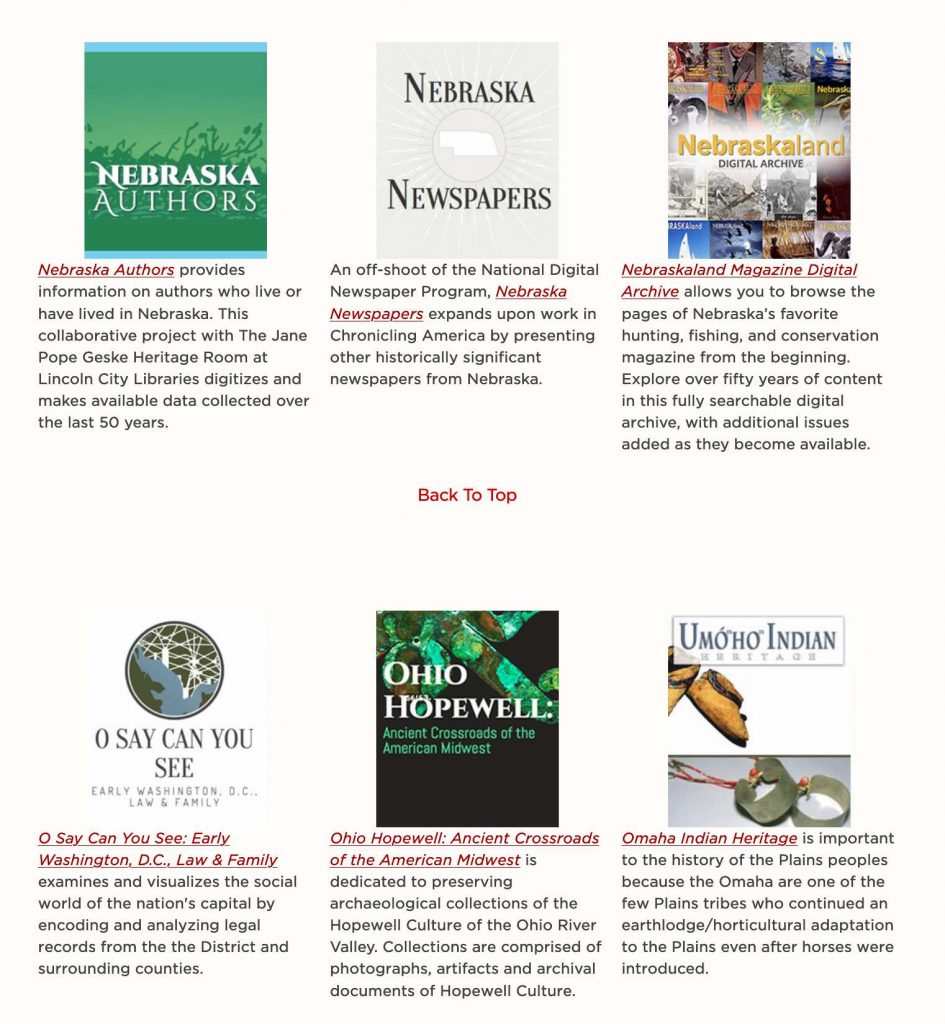
One of the big perks of being a staff member with a technical skillset is that we have job flexibility outside of academia. The ability to write code, manage data, and understand technical problems is a selling point in a lot of fields, and staff would (hopefully!) have other options available if any of us decided to seek employment outside of a university. This blogpost is not trying to dissuade you from pursuing a career as a professor if that is your goal, but it is nice to know that there are other opportunities available for DH enthusiasts out there.
Although what we do may sound intimidating, perhaps by breaking down how we got here, you’ll see that working in DH doesn’t mean you need a specific degree or to have been programming for 10 years!
Jump to a specific person’s career path:
Karin, designer / programmer
Jessica, programmer
Andy, office manager
Emily, managing editor of a digital archive
Greg, programmer
Laura, metadata encoding specialist
Karin Dalziel
Designer/Developer/Manager
What I do:
My current job started out as “CDRH Designer”, but it became apparent pretty quickly that I would need to learn to program as part of my job. Later, I had “developer” and “manager” added to my job titles.
Along with others, I help track the progress of Center projects and make sure we don’t miss any deadlines, mostly using a bunch of spreadsheets.
I am responsible for most of the Center’s site design, for which I come up with color schemes, work with scholars, and write the HTML, CSS, and some javascript. One site I really like is Cartas a la familia/Family Letters (familyletters.unl.edu), which I designed in collaboration with scholar Isabel Velázquez.
My main programming language is XSLT, which I use to transform the TEI XML the Center produces into HTML. I also code in Ruby where needed to alter our sites, but leave it to the other programmers to do the heavy lifting.

My favorite part of my job:
The variety! Also coincidentally sometimes my least favorite part of the job when everything hits at once. But, I’m never bored and I learn so much from the projects I get to work on.
Education and experience:
Bachelor’s in Fine Art, Master’s in Library Science (though the latter is not a requirement for my current job)
My very first job was in a library, and I’ve had jobs working on web content in one way or another for much of my adult life.
Why I got the job:
When I first applied at the CDRH, it was for the office manager/secretary position. My main skills were: I knew how to use computers and I knew how to design brochures (yay fine art degree!).
Later, when they were hiring a designer in the CDRH, I applied and got that job, thanks to my web design experience and knowledge of Digital Humanities. Since then I have learned the skills needed and advocated for myself when necessary to advance.
Advice for people starting out:
- If you think you want to work in a library one day, try to get some job in a library. It seems like “library experience” is weighed pretty heavily by a lot (but not all!) of people who hire.
- Talk to lots of people, follow scholars and DH staff on twitter, ask questions.
- Work on your own projects or find open source projects to contribute to if at all possible.
Jessica Dussault
Programmer & Analyst
What I do:
I create websites and crunch data using programming languages such as Ruby, JavaScript, and XSLT. I develop software that transforms data formats from one thing to another, which often means I’m taking things like spreadsheets or transcriptions of documents and loading them into a search portal (API) that we can then build our websites with and search. You may notice that a lot of our new websites have a similar look and feel to the search pages? That’s because of the software we are building to power our websites! I dabble with creating maps for our projects, and sometimes get to learn new things like working with 3D models or procedural modeling.
Part of my job also involves supporting the DH community here at UNL by organizing lectures and creating content for classes.
My favorite part of my job:
I love that I get to work on history, anthropology, literature, and more every day. I also appreciate that my job changes every few weeks as we move to the next project, so I never get bored!
Education and experience:
BA: Music and History (UNL)
MSc: Digital Humanities (University College London)
Digital Intern: National Theatre Archive (United Kingdom)
Software developer: SEMCAT (insurance software)
During my undergrad and graduate courses, I took a few classes that could be considered technical (databases, XML, mapping, computer music) but didn’t really know how to write much code. I started looking for jobs after I graduated and put in an application to be a software developer at a tech startup looking for someone with XML knowledge. I owe them a big debt of gratitude, because despite the fact that I didn’t have much experience, they hired me with the understanding that I would learn how to code on the job. I worked there for 2 years before the position at UNL was advertised.
Why I got the job:
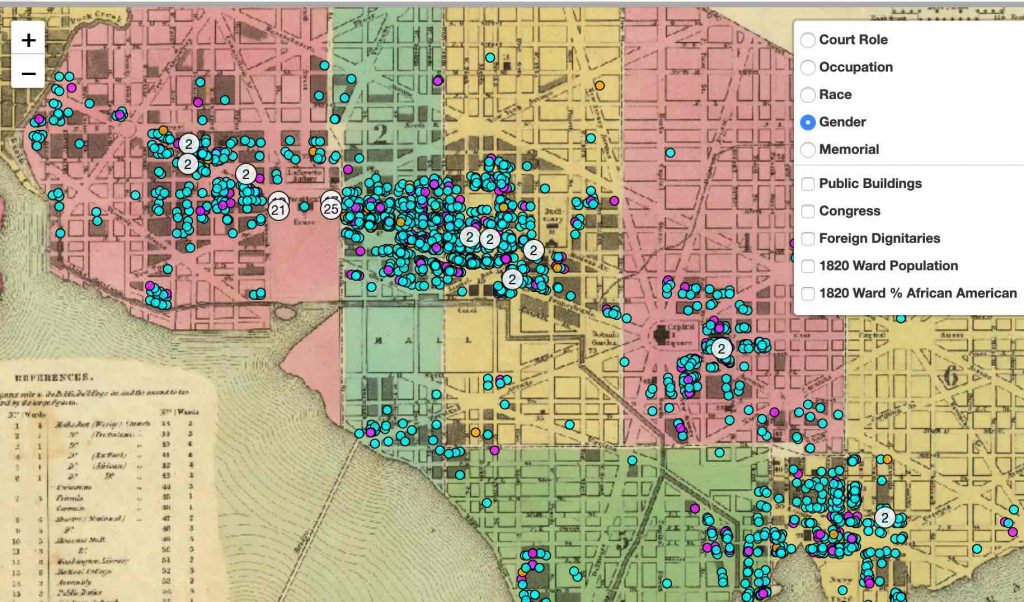
I think I got the job in the CDRH because of my background in humanities and strong XML / XSLT experience, as well as my interest in learning new things. My prior job as a software developer also involved a lot of back and forth between myself, clients, and corporations, which I think demonstrated that I could communicate technical concepts to other people, even if they didn’t share my same technical background.
Advice for people starting out:
Don’t be afraid to start learning a little bit of programming. It’s intimidating to start, so just pick a small project, like creating a choose-your-own text adventure or making your pet a personal website from scratch and you will learn a LOT. When I was a student and couldn’t program, it felt like I could only use pre-made tools for DH. After learning even a little bit of code I started realizing that I had the ability to make my own tools, which was super empowering.
Andy Pederson
Digitial Initiatives / Special Collections Office Associate
What I do:
Broadly speaking, I do office management, administration, and scheduling. I work with CDRH staff and faculty to schedule meetings and events. I also update the CDRH website. Last year, I started working on the National Digital Newspaper Program. I am responsible for microfilm quality control, creating metadata spreadsheets, and working with the Library of Congress to ensure our work meets the project’s standards.
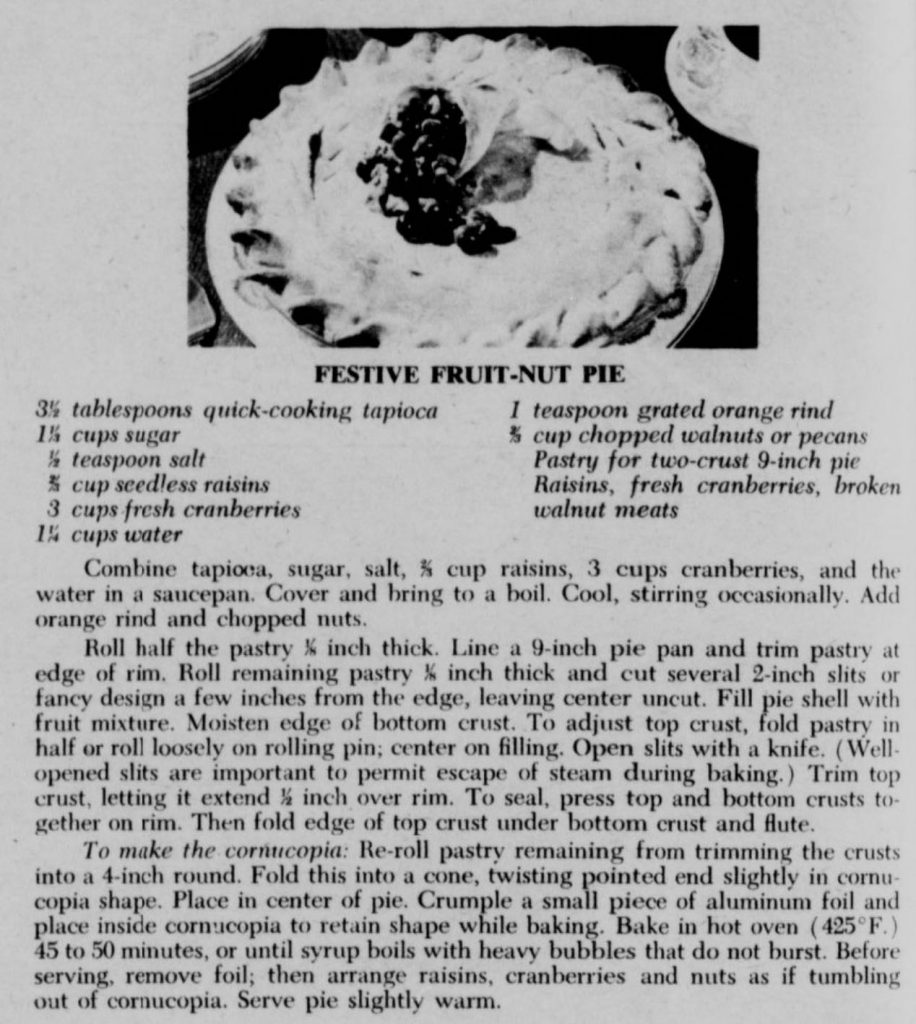
My favorite part of my job:
Working on the National Digital Newspaper Program! It has allowed me to learn so much about digitization, large scale projects, newspapers, metadata, and the Library of Congress. Following the same newspaper (on microfilm) from WW1, through the 20s, The Great Depression, and WW2 gave me a whole new perspective on the major events of the 20th-century. Also, I love finding old pie recipes!
Education and experience:
I went to UNL for my English undergrad and am currently working towards my Masters of Library and Information Science from the University of Missouri. Before working at the CDRH, I worked at Zipline Brewing Co. and Indigo Bridge Books.
Why I got the job:
I got this job because I have a background in office work and humanities. Plus, I have enough technology skills to assist with projects and showed an eagerness to learn more.
Advice for people starting out:
Check job postings every day! I checked UNL’s jobs page for months and applied to several different jobs before landing at the CDRH.
Emily Rau
Managing Editor, Willa Cather Archive
What I do:
Currently, the major project at the Willa Cather Archive is The Complete Letters of Willa Cather, a digital scholarly edition of Cather’s letters, and I coordinate the daily operations of this project. I directly supervise the graduate and undergraduate students and manage the collaborations between faculty, staff, and students. I also organize and lead the public outreach and public humanities efforts of the WCA, including planning events, running a community book club, and curating the social media accounts.
My favorite part of my job:
Being a part of the Cather community is the best part of my job. I love attending conferences and seminars dedicated to the life and work of Willa Cather and have presented my own research at a variety of events. At these events, we hear directly from Cather scholars that the work we do is useful and impactful, which lends even greater meaning to my own job. I also have made some wonderful friends through this warm, supportive community.
Education and experience:
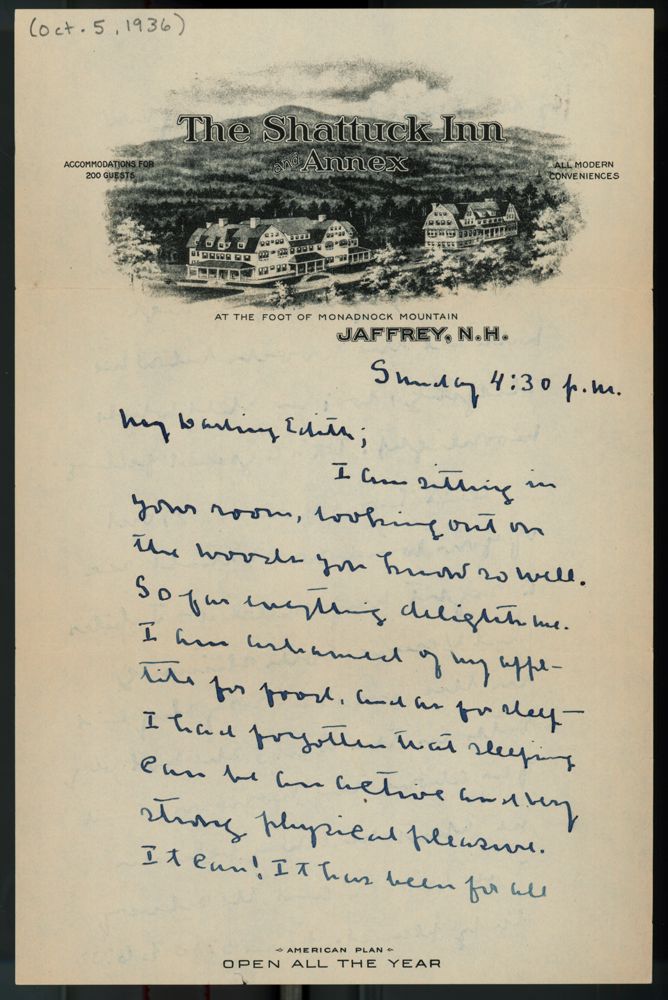
I am currently a PhD candidate in the English department here at UNL, finishing my dissertation. I completed the Digital Humanities Certificate here and received my MA in English from Lehigh University in 2014. When I started my PhD, I had a graduate assistantship in the WCA for my first two years while I finished coursework. Before coming to UNL, I had no digital humanities experience, although I had a background in literary scholarship, research, and writing. I also worked as a paralegal during and after college, before starting graduate school.
Why I got the job:
I actually did not plan to apply for the job when it was being created, but as I heard the plans develop, I realized that so much of what the person would be asked to do were things I was already doing or wanted to do. So I decided to apply and potentially dramatically slow down my progress towards my PhD. Since I had worked as an editorial assistant for two years, I had experience doing a lot of what was being asked by the job advertisement. Also, I had already been taking on some leadership roles in the project and starting new initiatives, especially in relation to public outreach. I had also attended a couple Cather conferences and had two Cather-related publications forthcoming at the time that I applied for the position.
Advice for people starting out:
Jump on the opportunities that present themselves to you and be bold enough to take a risk when it feels right. Taking a full-time job while only partially through my degree felt like a big risk, and I was worried I would never finish. But I consulted my advisors, family, friends, and own instincts and decided to take a chance. I certainly would not be able to do this without my network of mentors, collaborators, and supporters, especially my dissertation advisor, so I would certainly say you need to put the effort into building that network for yourself. But mostly trust yourself to rise to the challenge when you know that the work you do is worth it.
Greg Tunink
Programmer & Analyst
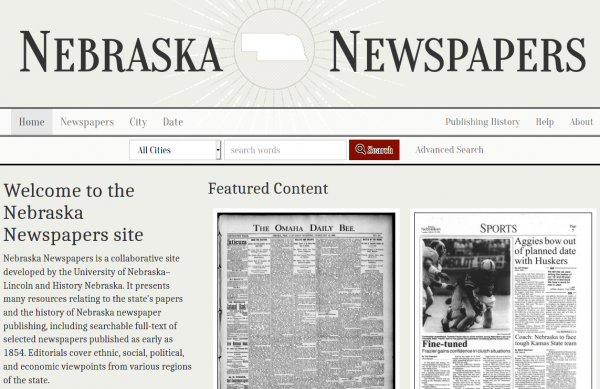
What I do:
I primarily develop web applications (Ruby on Rails, Django, CSS/Sass, JavaScript), maintain existing websites (PHP, XSLT), and administrate servers and server software (Apache, MariaDB, RVM, Phusion Passenger, Elasticsearch, Tomcat, Cocoon, etc) which facilitates hosting the aforementioned resources. I also help consult on, research software solutions, develop tools, and write / edit reports to assist with applying for and fulfilling grants.
One of the most unique things I get to do is help maintain an open source project that the development team helped start before I took this position: the Open Online Newspaper Initiative. We collaborate with other key stakeholders at universities on the two US coasts and try to steer the project to be easier for developers to contribute, other institutions to deploy, and site users to find what they’re looking for.
My favorite part of my job:
I think everyone in the CDRH and Libraries would consider themselves a lifelong learner, and this job has by far been the most rewarding in this aspect. I’ve gotten to work with so many new technologies, adapt them for a variety of purposes, and learn about innumerable academic projects going on with CDRH and Library staff and faculty. I will never, ever be bored working in the CDRH.
Education and experience:
I studied computer science in undergrad while I worked desktop support for University Housing. I was part of the College of Arts and Sciences so I took classes in English, History, etc to meet requirements but otherwise don’t have a particular focus in the humanities with my education. I loved those classes as a break from the math and hard sciences though. That is part of what drew me to the CDRH.
After graduating, I got a job doing full-stack web-development. Particularly Perl (without any sort of MVC framework) and MariaDB/MySQL for the back end, and familiarized myself with HTML, CSS, and JavaScript on the front end. I went into that job with relatively minimal knowledge of each of those technologies, perhaps with SQL being the strongest from a course in undergrad. So I had to teach myself a lot. I taught myself how to build a one page JavaScript web-app that was compatible back to IE 6, before all the modern frameworks came along, and learned the ropes of CSS so it isn’t a confusing nightmare anymore.
I also shared server administration responsibilities with a co-worker and we did everything on premises with bare metal servers. So I taught myself how to install and configure the operating system (CentOS 5 and 6 at the time), configure DNS (bind), email (postfix, dovecot), web (Apache), and database (MariaDB) servers. This was all over the course of six years, so it was a lot of time to learn so many things.
Why I got the job:
My server administration knowledge was a large part of what the CDRH was seeking when I was hired as it seems to be a little harder to find in someone that also knows general web development.  I think that skillset in combination with solid written and verbal communication skills are why I was chosen for my position.
I think that skillset in combination with solid written and verbal communication skills are why I was chosen for my position.
Advice for people starting out:
Experiment to find what you both enjoy and helps other people around you. It’s not easy to figure that out, but I think that is a recipe for enjoying your work and having a healthy work environment. Don’t be afraid to aim high. I honestly didn’t think I was qualified for my position when I applied, so don’t sell yourself short.
As for specific recommendations relating to DH / humanities computing, I think learning Elasticsearch and Solr text search servers, TEI / XML for document encoding, and any tools you can find for working with text analysis are a good idea. Text search servers are universally useful nowadays, but the other tools are a bit more humanities / academia focused. Beyond that, I think almost any web framework can be used to present the content from the other technologies. Learning one web framework will help get an understanding of how they are divided into parts which focus on different aspects of working with data and presenting it on the web.
Laura Weakly
Metadata Encoding Specialist
What I do:
Metadata! Some people say they don’t know what metadata means, but you use metadata every day when you search for an episode of your favorite show on Hulu, or your favorite genre of music on Spotify, or a book you need in the Libraries’ catalog. Still unsure? See this video from my friends at the University of Kentucky. I also spend a lot of time scanning archival materials, transcribing those materials and encoding them in TEI, and supervising the student workers in the CDRH.
My favorite part of my job:
Everything. I always tell people I have the best job ever. What could be cooler than working with old materials and then making them available for everyone to see and use? Also, the students. Anyone who complains about “students these days” will get an argument from me. The students I work with at UNL are intelligent, inquisitive, hard working, and a joy to be around.
Education and experience:
Bachelor of Journalism: News-Editorial Journalism and History (UNL)
Master of Arts: Journalism and Mass Communications (UNL)
My thesis was on the importance of editing in the digital environment. Before starting in the CDRH, I worked at newspapers, at an internet service provider (ISP), and creating websites at UNL.
Why I got the job:
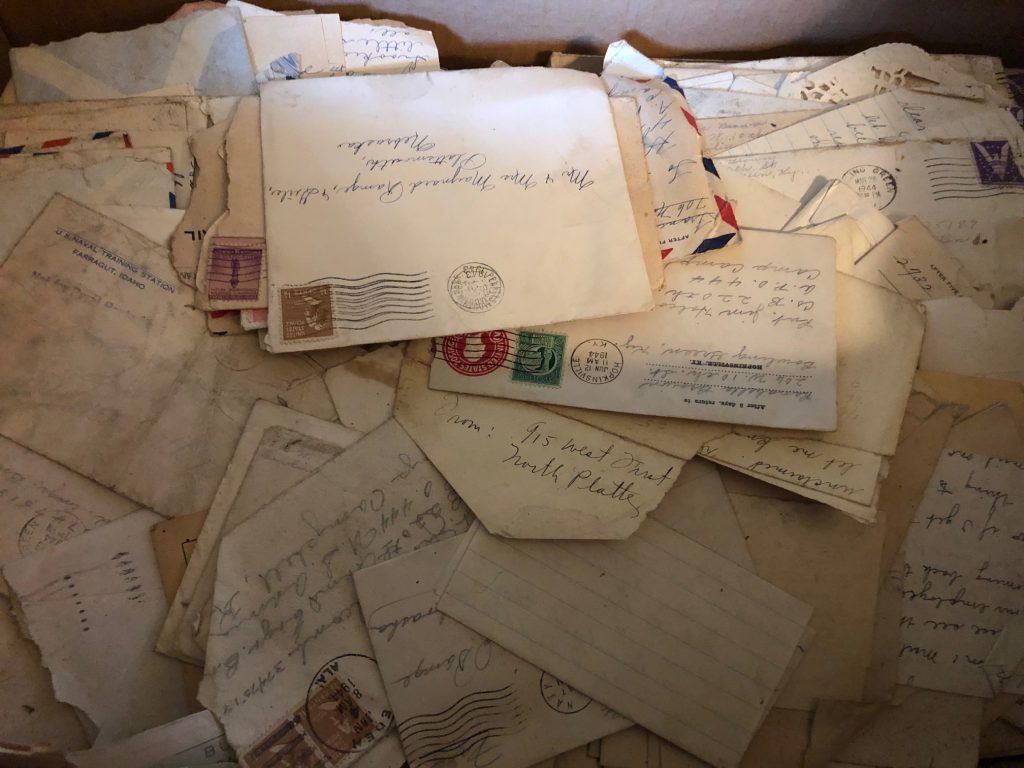
Luck? Fate? I’m not really sure. I think part of it was that I had created websites for newspapers, businesses, and educational purposes. To do that, I had self-taught myself html, image processing, ftp, and other skills. I was initially hired at the CDRH (then the Electronic Text Center) to work on one project – the Journals of the Lewis and Clark Expedition – and so I’m sure my history major played a part. One question from the interview that stands out to me was something along the lines of “What is your experience in using international standards?” I mentioned that during my time working at newspapers that I had memorized the Associated Press Stylebook, so that I and my co-workers didn’t have to run for a copy of the stylebook when we had a question. While not directly relevant, I think that might have helped.
Advice for people starting out:
1) Be honest with yourself about what you like and what you don’t like. Work is so much easier if you figure out what you like to do. This may take some trial and error, but that’s OK.
2) Don’t sell yourself short. It is a very Nebraskan thing to not want to brag, but there is a big difference between bragging and advocating for yourself. If you don’t know how to do it, ask someone to help you think through your skill set and express those skills in a way that will be helpful in an academic or business setting.
3) Ask questions. Sure, Googling is fine for a lot of things, but don’t be afraid to ask others for help, information, or advice.